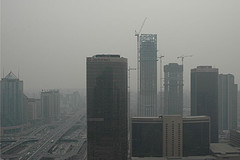The book might at first seem an odd choice for Bush, whose taste in biography, like that of other U.S. presidents, runs to previous occupants of the Oval Office. But it is not so surprising given that “Mao: The Unknown Story” has been embraced by the right as a searing indictment of Communism.
Other reviewers have praised the book’s brutal portrait of Mao as a corrective to sunnier biographies, even as they have questioned some of its prodigious research and criticized the authors for a moralistic, good-and-evil version of history.
Scott McClellan, the White House press secretary, said last week that Laura Bush had given the book to her husband as a gift and that the president had just finished reading it. Asked why Bush liked the book, McClellan said he would find out, then reported back on Friday that Bush had told him that it “really shows how brutal a tyrant he was” and that “he was much more brutal than people assumed.”
Bush also said, McClellan recounted, that “millions upon millions were killed because of his policies.” On that score, the book is both sweeping and specific, with a first chapter that begins with this sentence: “Mao Tse-Tung, who for decades held absolute power over the lives of one-quarter of the world’s population, was responsible for well over 70 million deaths in peacetime, more than any other twentieth-century leader.”
Chang and Halliday said in a telephone interview from Paris on Friday, during a long weekend away from their home in London, that they were “thrilled” that Bush had read the book. Chang, whose “Wild Swans,” a memoir of her family’s oppression under Mao, sold 10 million copies, said she surmised that Bush was drawn to the book because “it’s a very dramatic story about a roller-coaster life.” She also said that since Bush was dealing with the current Chinese leadership, “it’s not surprising that he should want to know from what roots this regime has grown.”
American scholars say that Bush was probably also drawn to the book because it is, in effect, an argument for the president’s second-term agenda of spreading democracy around the world.
One major disclosure in the book, for example, is Stalin’s powerful role in Mao’s rise.
“The book certainly makes an effective case for the wickedness of dictatorship,” said Andrew Nathan, a specialist in Chinese politics at Columbia University. “It doesn’t talk about democracy, but for a person who believes in democracy, this is a valuable brief.”
Nathan, who criticized what he called the authors’ vague and inaccessible sourcing last year in The London Review of Books, said the biography presented Mao as a “comic-book monster,” with little explanation of the psychological, sociological and historical forces that allowed him to rise.
He also said he was skeptical that the book would help in understanding China’s current leadership.
“Today’s Communist Party is a highly developed bureaucracy like IBM or General Motors,” Nathan said. “It’s not the Communist Party of Mao’s time.”
Considering how Bush sees things as pure black and white, I’d prefer to see him reading a more nuanced book on China. However, if his endorsement of the book helps bring Mao’s savagery and inhumanity into the limelight, I won’t complain.

Comments